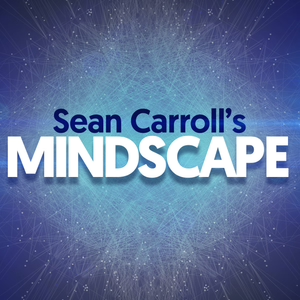
What Is Modernity?
11/18/23 • 36 min
We often think of modernity as a distinct time period in history – one that is said to start at different places, but which always includes us. Yet people have been claiming to be modern since at least the third century BC. Harvard scholar Michael Puett takes us back to ancient China, when a series of emperors laid claim to modernity in order to consolidate their rule. Puett argues that modernity is best understood not as a period on a timeline but as a claim to freedom from the past. By recognizing how “modernity claims” try either to erase the past or to master it for our own uses, we can appreciate what is at stake in our own invocations of “modernity."
Researcher, writer, and episode producer: Ryan McDermott, Associate Professor of English, University of Pittsburgh; Senior Research Fellow, Beatrice Institute
Featured Scholar: Michael Puett, Professor of Chinese History and Anthropology, Harvard University
Special thanks: Travis DeCook, Rokhaya Dieng, Gina Elia, Thomas A. Lewis
For bibliography, teaching aids, and other supporting media, please visit: https://genealogiesofmodernity.org/podcast-season-ii-ep-ii
We often think of modernity as a distinct time period in history – one that is said to start at different places, but which always includes us. Yet people have been claiming to be modern since at least the third century BC. Harvard scholar Michael Puett takes us back to ancient China, when a series of emperors laid claim to modernity in order to consolidate their rule. Puett argues that modernity is best understood not as a period on a timeline but as a claim to freedom from the past. By recognizing how “modernity claims” try either to erase the past or to master it for our own uses, we can appreciate what is at stake in our own invocations of “modernity."
Researcher, writer, and episode producer: Ryan McDermott, Associate Professor of English, University of Pittsburgh; Senior Research Fellow, Beatrice Institute
Featured Scholar: Michael Puett, Professor of Chinese History and Anthropology, Harvard University
Special thanks: Travis DeCook, Rokhaya Dieng, Gina Elia, Thomas A. Lewis
For bibliography, teaching aids, and other supporting media, please visit: https://genealogiesofmodernity.org/podcast-season-ii-ep-ii
Previous Episode

Climbing the Mountains of Modernity
We all know many stories about how modernity came about. But what does it mean to be “modern?” This episode comes at the question through the test case of mountain climbing and rock climbing. Claims to becoming modern through climbing often point back to Italian humanist Francesco Petrarch’s ascent of Mt. Ventoux in 1336, a climb that made him, according to many historians, “the first modern man.” But Petrarch was by no means the first person to climb Mt. Ventoux, and his own account is, if anything, counter-modern. By surveying evidence of much earlier climbing in Europe and pre-contact North America, the episode argues that humans have always been climbing mountains and scaling cliffs for a wide variety of reasons. Only recently did they start to think of these achievements as making themselves “modern.” It turns out that to claim to be modern is one of the most modern things you can do.
Researcher, writer, and episode producer: Ryan McDermott, Associate Professor of English, University of Pittsburgh; Senior Research Fellow, Beatrice Institute
Featured Scholars:
Shannon Arnold Boomgarden, Director of Range Creek Field Station, University of Utah
Larry Coats, Career-line Associate Professor of Geography, University of Utah
Peter Hansen, Professor of History, Worcester Polytechnic Institute
Dawn Hollis, Independent Historian
Special thanks to: Jake Grefenstette, John-Paul Heil, Jason König, Michael Krom, Michael Puett
For bibliography, teaching aids, and other supporting media, please visit: https://genealogiesofmodernity.org/podcast-season-ii-ep-i
Genealogies of Modernity is a limited series from the Genealogies of Modernity Project and Ministry of Ideas. Each episode takes up a well-worn story about what it means to be modern and how we got here, and then challenges that narrative with recent humanities scholarship. Genealogies of Modernity illuminates lesser-known pathways to the present and unearths overlooked resources from the past for flourishing in the future.
Genealogies of Modernity is a project of Beatrice Institute and Collegium Institute for Catholic Thought and Culture, with major support from the National Endowment for the Humanities. For responses to the series, teaching aids, as well as artwork and videos, visit genealogiesofmodernity.org.
Ryan McDermott, Producer and Genealogies of Modernity Project Director .
Maria Devlin McNair, Senior Producer and Script Editor
Jack Pombriant, Sound Designer
Zachary Davis, Executive Producer (Ministry of Ideas)
Special thanks: Dan Cheely, James DeMasi, Peter Fristedt, Max Glider, Jake Grefenstette, Darrah McDermott, Jess Sweeney, University of Pittsburgh Department of English and Humanities Center, Institute for Advanced Studies in Culture
Next Episode

What Is Genealogy?
Genealogy, in Charles Darwin’s terms, is the study of “descent with modification.” Taken as an analogy for the study of history, genealogy can guard against the potential dangers of claiming modernity. Against the effort to erase the past, genealogy asserts that our ancestry will always be with us. Against the effort to master the past, genealogy reminds us that our descendants have the freedom to create new futures. Sociologist Alondra Nelson tells the story of how African Americans have used DNA-informed genealogy to recover African identity despite slavery’s erasure of family history. Genealogical thinking can help us shape a disposition to the past that recognizes the legacy of injustice while also fostering human flourishing in the future.
Researcher, writer, and episode producer: Ryan McDermott, Associate Professor of English, University of Pittsburgh; Senior Research Fellow, Beatrice Institute
Featured Scholars:
Alondra Nelson, Harold F. Linder Professor of Social Science, Institute for Advanced Study
Caro Pirri, Assistant Professor of English, University of Pittsburgh
Michael Puett, Professor of Chinese History and Anthropology, Harvard University
Special thanks to: Eduard Fiedler, Christopher Firestone, Thomas A. Lewis, Thomalind Martin Polite, Sara Trevisan
If you like this episode you’ll love
Episode Comments
Generate a badge
Get a badge for your website that links back to this episode
<a href="https://goodpods.com/podcasts/genealogies-of-modernity-89841/what-is-modernity-37184248"> <img src="https://storage.googleapis.com/goodpods-images-bucket/badges/generic-badge-1.svg" alt="listen to what is modernity? on goodpods" style="width: 225px" /> </a>
Copy




